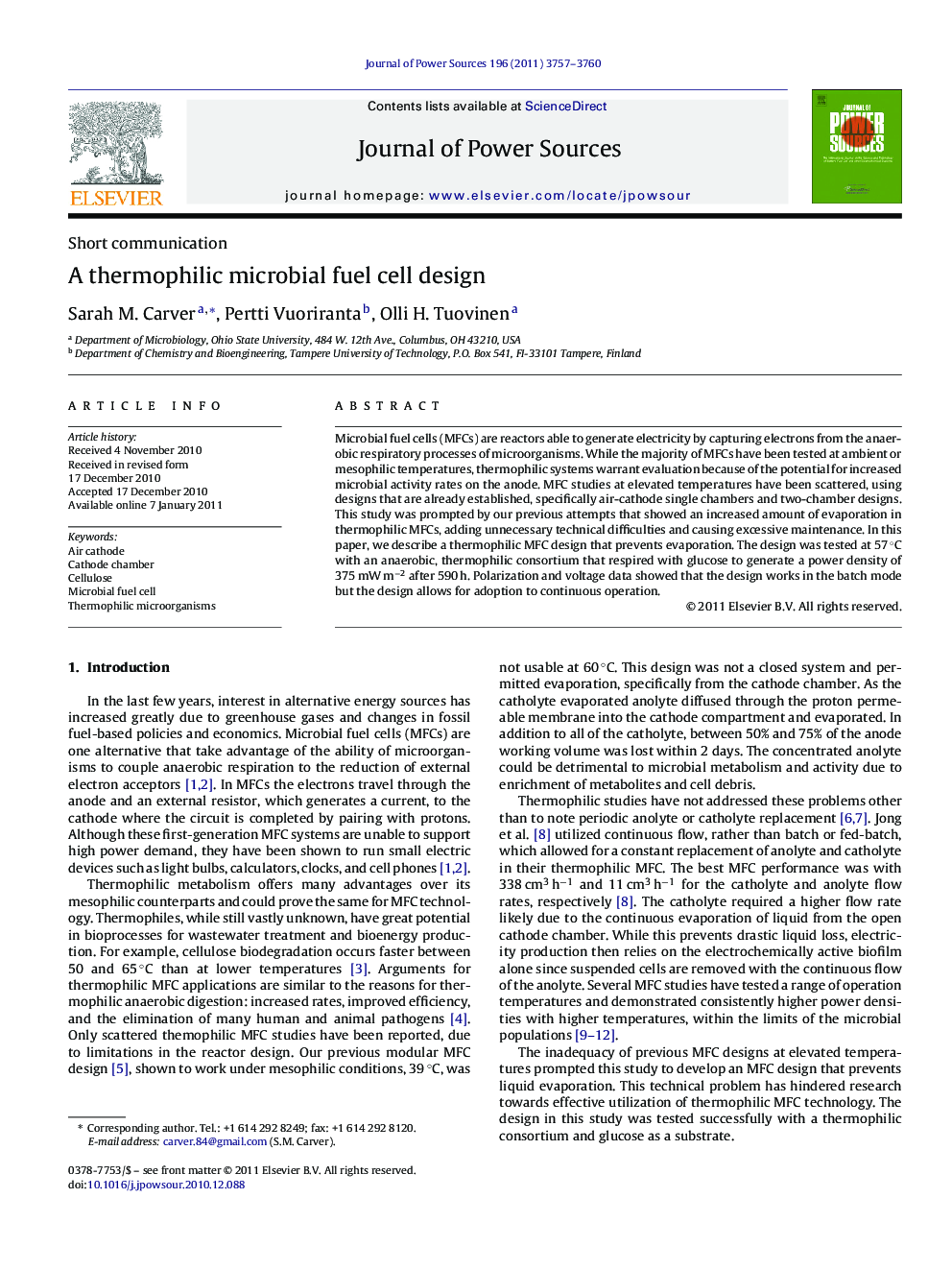| Article ID | Journal | Published Year | Pages | File Type |
|---|---|---|---|---|
| 1289240 | Journal of Power Sources | 2011 | 4 Pages |
Microbial fuel cells (MFCs) are reactors able to generate electricity by capturing electrons from the anaerobic respiratory processes of microorganisms. While the majority of MFCs have been tested at ambient or mesophilic temperatures, thermophilic systems warrant evaluation because of the potential for increased microbial activity rates on the anode. MFC studies at elevated temperatures have been scattered, using designs that are already established, specifically air-cathode single chambers and two-chamber designs. This study was prompted by our previous attempts that showed an increased amount of evaporation in thermophilic MFCs, adding unnecessary technical difficulties and causing excessive maintenance. In this paper, we describe a thermophilic MFC design that prevents evaporation. The design was tested at 57 °C with an anaerobic, thermophilic consortium that respired with glucose to generate a power density of 375 mW m−2 after 590 h. Polarization and voltage data showed that the design works in the batch mode but the design allows for adoption to continuous operation.
Research highlights▶ A microbial fuel cell (MFC) was designed for operation at thermophilic temperatures. ▶ The MFC assembly was successfully operated with glucose at 57 °C. ▶ The design effectively eliminated anolyte and catholyte evaporation. ▶ Polarization curve showed minimal activation losses. ▶ Overshoot phenomenon was apparent in the mass transfer region of polarization curve.
